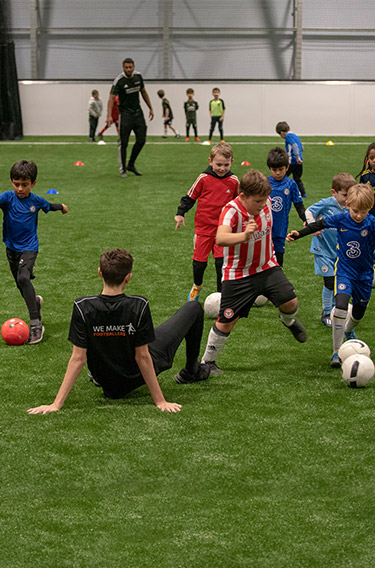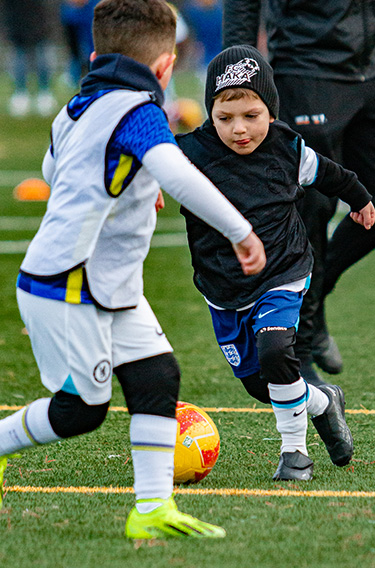Sport nutrition, diet or food and drink, for football players is becoming increasingly scientific and recognised for its importance in the game of football. This article covers the most important principles of sport nutrition for young players and ensuring you understand why is the best food for footballers.
Why is sport nutrition or diet important in football?
Food provides us with energy for our muscles, brain and other organs. Football requires plenty of exercise, and therefore it is important to have energy available to us during the game. The energy available to us at any particular time depends on our blood sugar levels.
We want all of our players to attend every training session at our academies full of energy so they can train to their best of their ability.
If we over-eat, we become over-weight. The heavier we are, the more work our muscles have to do to take us the same distance. This reduces our stamina, and our ability to accelerate quickly.
If we under-eat, we can become weak and our overall health can decline, because we are not getting enough nutrients.
A healthy diet improves our general level of health, and can help us recover more quickly from injuries.
What to eat and when to eat it
The timing of the meals you consume is important.
On the day of a match or training session the intake of fat and protein should be restricted, as these nutrients require a relatively long time to be digested.
When it comes to the best food for footballers, you should consume foods such as: breakfast cereal with low fat milk, toast or bread with jam/honey, sandwiches with banana/honey/jam, pasta/rice with low fat sauce, muffins, baked potato, fruit, energy bars, and orange juice.
A snack high in carbohydrate may be eaten about 2 hours before the match or training, however the time reference is only a guideline as there are great individual differences in the ability to digest food.
After a match, usually for dinner, it is good to eat foods high in protein to help with muscle recovery and development. This could include fish, chicken, red-meat or vegetarian options such as eggs, tofu and beans.
It is a good idea for you to experiment with a variation of foods at different times before training sessions.
Foods such as white bread or crumpets with jam/honey, sweetened cereal and low fat milk, muffins, orange juice and jelly sweets could be consumed but should be done in moderation. High amounts of sugar early in the day are quickly absorbed into the blood and can lead to a 'crash' later on in the afternoon. It is better to mix high energy foods such as apples with more grainy food such as peanut butter to help slow the release of energy. This is why foods such as porridge in the morning is considered a better choice than sugary cereals as they deliver energy more slowly into the body throughout the day.
What’s best to drink?
For young footballers, we recommend just good old plain water.
Many drinks targeting children actually have high sugar content, so you should be wary of items that are positioned as healthy when they are not. Some nutritionists argue that even fresh juices, such as orange juice and apple juice, have high amounts of fructose in them, which, when digested, are quickly converted into sugars. Many juices do provide nutritional benefits, though, such as vitamin C, so it's important to ensure balance in all you consume.
We strongly disagree with children consuming caffine in any quantity as this can lead to hyperactivity and lack of sleep. There have been many studies that explain this in more detail.
When should I drink?
Ideally, it’s best to drink before, during and after a training session, as well as drinking frequently during a match or practise.
How much should I drink?
Only a little – but often. If you drink too much too quickly, you run the risk of getting a stomach upset.
Ultimately we want the best for our children, taking care of the details such as diet makes helps kids get into good habits from early on. It will also give children the correct fuel they need to be able to play football, whether its at one of our academy training sessions in Southall or a football match on a Sunday.
This article is for entertainment purposes only, and we recommend speaking to a qualified doctor or nutritionist if you have questions about your diet or nutrition.



